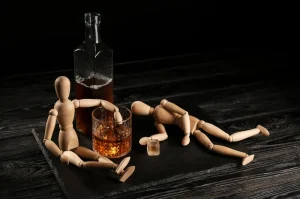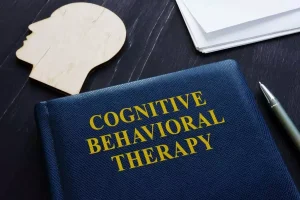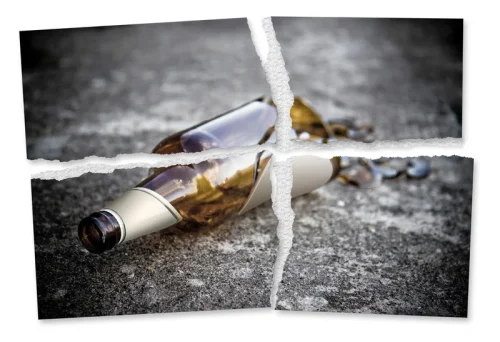
A detox program can help you avoid life-threatening complications during detox, including seizures and dehydration. In this article, we will explore why you may feel a little shaky after drinking. You’ll also learn about signs of alcohol abuse and addiction and where to find treatment. While alcoholic shakes may be a common condition for those struggling with alcohol addiction or long-term alcohol use, they’re not something to be taken lightly.

What is Opioid Addiction?
Tremors, or “the shakes,” are a common symptom of alcohol withdrawal. While these tremors usually occur in the hands, they can happen anywhere in the body. Alcohol withdrawal shakes can be uncomfortable and frightening, but fortunately, there are steps you can take to manage this symptom. During this time, your doctor can help you reduce withdrawal tremors with medications. Anxiety and stress can make tremors worse, so managing your stress levels during withdrawal and recovery is also important.
- They can recommend alcohol rehabilitation programs, specialist providers, support groups and more.
- Blood and urine tests may also be done to determine the amount of alcohol the person has consumed, as well as any other additional drugs that may be in their system.
- If you have the shakes, medical intervention is typically necessary, as shakes can be a sign of more serious withdrawal complications.
- If you’re experiencing alcohol withdrawal, your body might be going through an array of uncomfortable physical and mental changes.
Delirium Tremens
Make sure you enjoy plenty of activities to help you avoid alcohol. BetterHelp can connect you to an addiction and mental health counselor. During an exam, they’ll look for other medical conditions to see if they could be to blame. When the alcohol level suddenly drops, your brain stays in this keyed up state. Over time, your central nervous system adjusts to having alcohol around all the time. Your body works hard to keep your brain in a more awake state and to keep your nerves talking to one another.
Delirium tremens and seizures
Alcohol shakes are a symptom of the disorder when they occur with other signs of AUD. Eating healthy plays a significant role in a person’s successful recovery. When your body receives the nutrients it needs, it feels better, and you’re less tempted to drink. If your doctor thinks you might be going through alcohol withdrawal, they’ll ask you questions about your drinking history and how recently you stopped. They’ll want to know if you’ve ever gone through withdrawal before.
Outpatient Treatment
- Try to remember that you don’t have to feel shame about your experience.
- Over time and with consistent intake, your brain adapts to the depressant effects by becoming hyperactive, trying to maintain a state of equilibrium.
- Here are suggestions for how to get through alcohol withdrawal at home.
- When you stop drinking, after doing so heavily for a long time, the depressant on your central nervous system stops, causing your nervous system to become overexcited.
- It can be very comforting to know that many people have gone through withdrawal before.
Withdrawal symptoms are common for people with alcohol use disorder who stop drinking, but many respond well to treatment. They may also give you (or a caregiver or loved one who’s with you) a questionnaire called a Clinical Institute for Withdrawal Assessment for Alcohol Revised Scale. This can help them determine your symptoms and measure the severity of your withdrawal. A score of 15 or higher means you’re at high risk for delirium tremens.

How Long Do Tremors Last?
Alcohol withdrawal symptoms range from mild but annoying to severe and life-threatening. For mild alcohol withdrawal that’s not at risk of worsening, your provider may prescribe carbamazepine or gabapentin to help with symptoms. Symptoms of alcohol withdrawal tend to peak 24 to 72 hours after your last drink. Long-term heavy alcohol use sets up a tug-of-war-like effect in your body.
- This is alcohol withdrawal, and it causes uncomfortable physical and emotional symptoms.
- The best ways to prevent severe symptoms after you stop drinking alcohol are close supervision by your doctor and treatment that usually includes benzodiazepines.
- After discharge from treatment, follow-up aftercare is vital for successful long-term recovery.
- This can lead to short and long-term complications for your physical and mental health.
Unless these two brain areas are functioning properly, a person may experience tremors or even seizures they cannot control. Tremors often affect people suffering from neurological disorders, like muscular dystrophy or cerebral palsy. For most people, alcohol withdrawal symptoms will begin sometime in the first eight hours after their final drink. Still, if you’re experiencing alcohol withdrawal, it’s essential to have your symptoms evaluated by a medical professional. Minor alcohol withdrawal symptoms typically set in about 6 hours after your last drink and may last 4 to 48 hours. The symptoms most commonly begin between 6 to 24 hours after your last drink.
Additional Common Questions
The experience of withdrawing from alcohol can be uncomfortable and difficult. Some people may relapse, or drink alcohol again, to relieve the symptoms. Avoid people who may encourage you to drink alcohol or may not support your decision to stop. It may be easier on your alcohol shakes rehabilitation to skip visits with “drinking buddies” or avoid gatherings with a focus on drinking. Dietary guidelines recommend that if you drink, men limit daily drinking to two drinks or less per day and women limit their drinking to one drink or less per day.
Meditation can help clear your mind to focus on what really matters. It pulls you out of a reactive state of mind and into a proactive state, which can be a powerful tool in helping treat alcohol withdrawal. An alcohol detox program provides medical supervision, emotional support, and holistic therapies to provide comfort.










